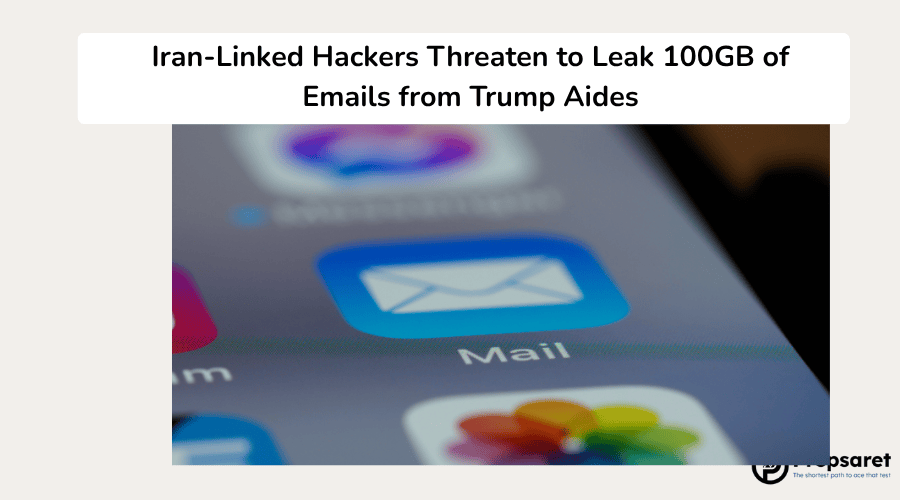Summary
- Hackers claim to have 100GB of emails from top Trump associates, including Roger Stone and Susie Wiles.
- The group, tied to Iran’s Revolutionary Guard, hints at selling or leaking the material.
- U.S. officials label the breach a targeted propaganda effort amid rising U.S.-Iran tensions.
Hackers Linked to Iran Threaten Massive Email Leak
A hacking group tied to Iran’s Revolutionary Guard has threatened to release a cache of emails stolen from close associates of former President Donald Trump, intensifying concerns about foreign interference as the U.S. navigates a tense political environment.
Using the pseudonym “Robert,” the hackers claimed in online conversations with Reuters that they have around 100 gigabytes of emails from the accounts of key Trump allies, including White House Chief of Staff Susie Wiles, adviser Roger Stone, Trump lawyer Lindsey Halligan, and adult film actress Stormy Daniels. The group hinted they might sell the emails but provided no details on their contents or release timeline.
The U.S. Department of Justice previously indicted three Iranians for hacking related to Trump’s 2024 campaign, alleging oversight by Iran’s Revolutionary Guard. While the hackers said they had no plans for further cyberattacks, they suggested the recent Israel-Iran conflict and subsequent U.S. military intervention motivated them to act.
The incident comes shortly after Trump halted plans to ease sanctions on Iran, following remarks by Iran’s Supreme Leader downplaying damage from U.S. and Israeli strikes on Iranian nuclear facilities.
U.S. Officials Condemn Breach as Propaganda
U.S. officials have strongly condemned the breach, framing it as a calculated attempt to undermine American institutions. U.S. Attorney General Pam Bondi described the intrusion as an “unconscionable cyber-attack,” while FBI Director Kash Patel promised full investigations and prosecutions for those involved.
The Cybersecurity and Infrastructure Security Agency (CISA) characterized the hack as a “calculated smear campaign,” emphasizing that the targets were deliberately chosen to damage Trump’s reputation and discredit public servants. CISA spokesperson Marci McCarthy described the act as “digital propaganda,” stating that it is designed to “distract, discredit, and divide” Americans while promising that the perpetrators will be held accountable.
The threat of a major leak underscores the broader issue of cybersecurity and foreign interference in U.S. politics. Analysts note that during the 2024 presidential election cycle, Iranian cyber actors became more aggressive, with Microsoft identifying multiple disinformation and hacking campaigns aimed at influencing U.S. voters, in a shift from the Russia-led efforts seen in 2016.
As the hackers continue to hold the data, uncertainty remains over the potential political and security fallout if the emails are released. The incident adds another layer of complexity to the ongoing tensions between the U.S. and Iran, illustrating how cyber tactics are increasingly used in geopolitical conflicts to exert pressure and sow discord within American society.

